

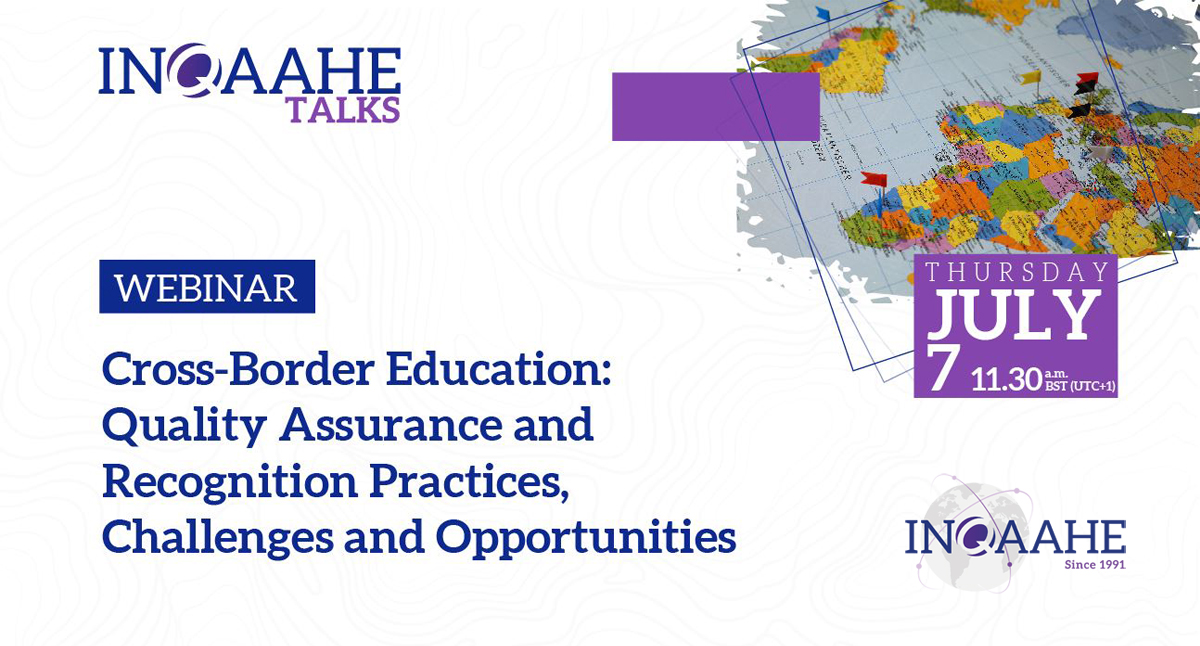
Higher Education Institutions and Quality Assurance Agencies in small states face unique challenges and opportunities in delivering quality assurance that is both contextually relevant and aligned with global standards. In this INQAAHE Talks seminar, on 26 August, 4 experts from around the small states explored how they strive to overcome challenges specific to small states in internal and external QA while the need for robust QA systems has never been so necessary.
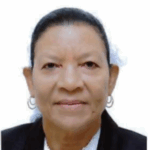 Dr. Fiona Ernesta
Dr. Fiona ErnestaMs. Fiona Marie Ernesta, from Seychelles, holds two Master’s degrees and three postgraduate qualifications, including one in Quality Assurance in Higher Education. Her career began as a lecturer at the Teacher Training Institution, later advancing to Assistant Director for Studies. She has held key leadership roles such as Director of the Adult Learning and Distance Education Centre in 2003 and Director General for Technical and Further Education in 2007.
Since 2012, Ms. Ernesta has served as the Chief Executive Officer of the Seychelles Qualifications Authority (SQA), where she has contributed to significant developments, including Recognition of Prior Learning in Seychelles, ratification of the Addis Convention in 2019, Seychelles credit accumulation and transfer system, the development of the SQA Act 2021, and the review of the Seychelles National Qualifications Framework (SNQF) and National Qualifications Framework Regulations which were both approved by the Cabinet of Ministers in October 2024. Ms. Ernesta joined the SADC Technical Committee on Certification and Accreditation as Member, representing Seychelles in 2013 and has been an active member since. She played a crucial role in the aligning pilot between the Seychelles National Qualifications Framework (SNQF) with the SADC Qualifications Framework (SADCQF) and, as a member of the ACQF, participated in the comparison pilot between the European Qualifications Framework (EQF) and the SADCQF. She is currently leading the referencing pilot between the SNQF to the African Continental Qualifications Framework (ACQF).
Seychelles is an island nation located in the western Indian Ocean, covering a little more than 450 square kilometres and home to a population of approximately 120,000 people. The tertiary education and training system is relatively new, with the University of Seychelles, established in 2009, being the country’s main public university, supported by a network of professional centres such as the Seychelles Institute of Teacher Education and the Seychelles Institute of Technology. These institutions fall under the oversight of various ministries, depending on their field, but quality assurance and qualifications is now managed solely by the Seychelles Qualifications Authority (SQA) following the dissolution of the Tertiary Education Commission in 2022. The sector faces challenges such as funding and retention, but benefits from relatively high participation rates and ongoing efforts to align with international standards.
See what Seychelles looks like by following these links CrowdRiff Media Hub , Seychelles’s hidden gems: More than a beach holiday.
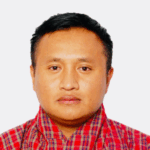
Mr. Kuenzang Dorji
Mr. Kuenzang Dorji is a Senior Programme Officer at the Higher Education Quality Council, under the Bhutan Qualifications and Professionals Certification Authority (BQPCA), Ministry of Education and Skills Development. He holds a master’s degree in education and brings over a decade of diverse experience spanning primary to higher secondary education, including teaching, curriculum development, and educational research. In his current role, he plays a pivotal role in strengthening Bhutan’s tertiary education landscape through strategic initiatives in national accreditation, policy framework development, and research. He commits to enhancing accreditation standards and promoting a culture of continuous quality improvement across higher education institutions.
The Kingdom of Bhutan is a small landlocked country located in the eastern Himalayas, between India and China. Home to around 770,000 people living across roughly 38,394 square kilometres. The higher education system in Bhutan is relatively young, with the Royal University of Bhutan having been set up only in 2003 to function as an umbrella institution for the country’s public colleges. Private higher education is an even newer phenomenon, with the first private college having opened in 2009. A few other small private institutions have since been established, though the sector remains limited. The Ministry of Education and Skills Development’s mission is to foster a knowledge-based society grounded in Gross National Happiness by equipping learners with skills, values, and competencies needed to thrive in the 21st century. Quality assurance is overseen by the Higher Education Quality Council, working under the Bhutan Qualifications and Professionals Certification Authority (BQPCA).
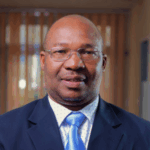
Mr. Mboni Dlamini
Mboni C. Dlamini is the Executive Secretary of the Eswatini Qualifications Authority (EQA). He has thirty years of experience at all levels of Education, Training and Skills Development, having worked as a Teacher, Education Economist, Director of the European Union-Funded Support to Education and Training Programme (SET) in Eswatini and the Executive Secretary to Eswatini Higher Education Council (ESHEC). He has played a significant role in spearheading key development initiatives within the education & skills development sector in Eswatini. He coordinated the establishment of two key entities: the Eswatini Higher Education Council (ESHEC) as well as the Eswatini Qualifications Authority (EQA). He co-managed with the World Bank the review/analysis of Eswatini’s Education, Training and Skills Development Sector in 2010 and coordinated the development and implementation of the Education Sector Strategic Plan 2010-2022 and the medium-term National Education and Training Improvement Programme. He is the country’s representatitive in the Regional Steering Committee of the SADC University of Transformation.
Eswatini is a small, landlocked country in Southern Africa, bordered by South Africa and Mozambique. It covers approximately 17,364 square kilometres and has a population of around 1.2 million people. The country’s tertiary education system is largely centered on the University of Eswatini (UNESWA), established in 1982, which is the main public university and accounts for about 61% of total student enrolment. In addition to UNESWA, there are three private higher education and training institutions that offer a variety of programmes. The Education Sector Higher Education Council (ESHEC) is the national regulatory body responsible for overseeing all tertiary education institutions, both public and private. ESHEC enforces standards and quality through the Higher Education Act of 2013, along with related regulations on establishment, registration, and accreditation, to ensure consistent and quality higher education throughout the country.
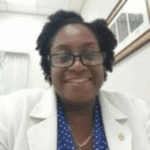
Dr. Pamela Dottin
Dr. Pamela Dottin is a Senior Programme Officer at the University of the West Indies (The UWI), where she plays a pivotal role in the Quality Assurance Unit, specifically with responsibility for Graduate Studies and Research across the University and the Global Campus, formerly known as the Open Campus. With a distinguished career spanning over 30 years in education generally and 19 in internal and external quality assurance, Dr. Dottin has significantly contributed to the enhancement of educational standards and practices across the Caribbean.
The UWI has been and continues to be a pivotal force in every aspect of Caribbean development, residing at the centre of all efforts to improve the wellbeing of people across the region for the past 75 years.
From a university college of London in Jamaica with 33 medical students in 1948, The UWI is today an internationally respected, global university with near 50,000 students and five campuses: Mona in Jamaica, St. Augustine in Trinidad and Tobago, Cave Hill in Barbados, Five Islands in Antigua and Barbuda and its Global Campus, and international centres in partnership with universities in North America, Latin America, Asia, Africa and Europe.
The UWI offers over 1000 certificate, diploma, undergraduate and postgraduate degree options in Culture, Creative and Performing Arts, Food and Agriculture, Engineering, Humanities and Education, Law, Medical Sciences, Science and Technology, Social Sciences, and Sport. As the Caribbean’s leading university, it possesses the largest pool of intellect and expertise in the Caribbean and is committed to confronting the critical issues of our region and the wider world
The UWI has been consistently ranked among the top universities globally by the most reputable ranking agency, Times Higher Education (THE). The UWI is the only Caribbean-based university to make the prestigious lists since its debut in the rankings in 2018. In addition to its leading position in the Caribbean in the World University Rankings, it is also in the top 25 for Latin America and the Caribbean and the top 100 global Golden Age universities (between 50 and 80 years old). The UWI is also featured among the leading universities on THE’s Impact Rankings for its response to the world’s biggest concerns, outlined in the 17 United Nations Sustainable Development Goals (SDGs), including Good Health and Wellbeing; Gender Equality and Climate Action.
In 2024, The UWI launched a first-of-its-kind global online graduate business school focused on leadership in supporting the SDGs, the International School for Development Justice (ISD).
Learn more at www.uwi.edu.
This 90-minute webinar, chaired by INQAAHE CEO Fabrice Hénard, explored the unique challenges and opportunities facing small states in quality assurance for higher education. With limited resources and talent pools, how can these nations build and retain skilled QA professionals while avoiding the risks of simply transplanting large-country models? We examined how regional cooperation—through shared tools, joint training, and reviewer networks—can enhance QA systems and consider ways to uphold objectivity and trust in both internal and external QA processes in tightly-knit academic environments. Finally, participants reflected on what a truly “fit-for-purpose” QA system means in their own context, and how it can strike a balance between local realities and global standards.
An insightful conversation on how tailored, collaborative, and sustainable approaches to QA can strengthen higher education systems in small states!
The session was chaired by:
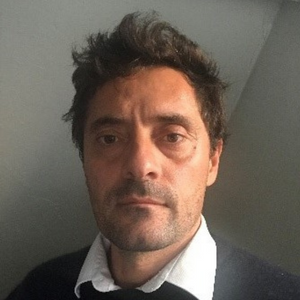
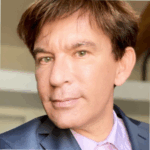 Mr. Fabrice Hénard
Mr. Fabrice HénardINQAAHE Chief Executive Officer.
By subscribing to the newsletter, you agree to our privacy policy.